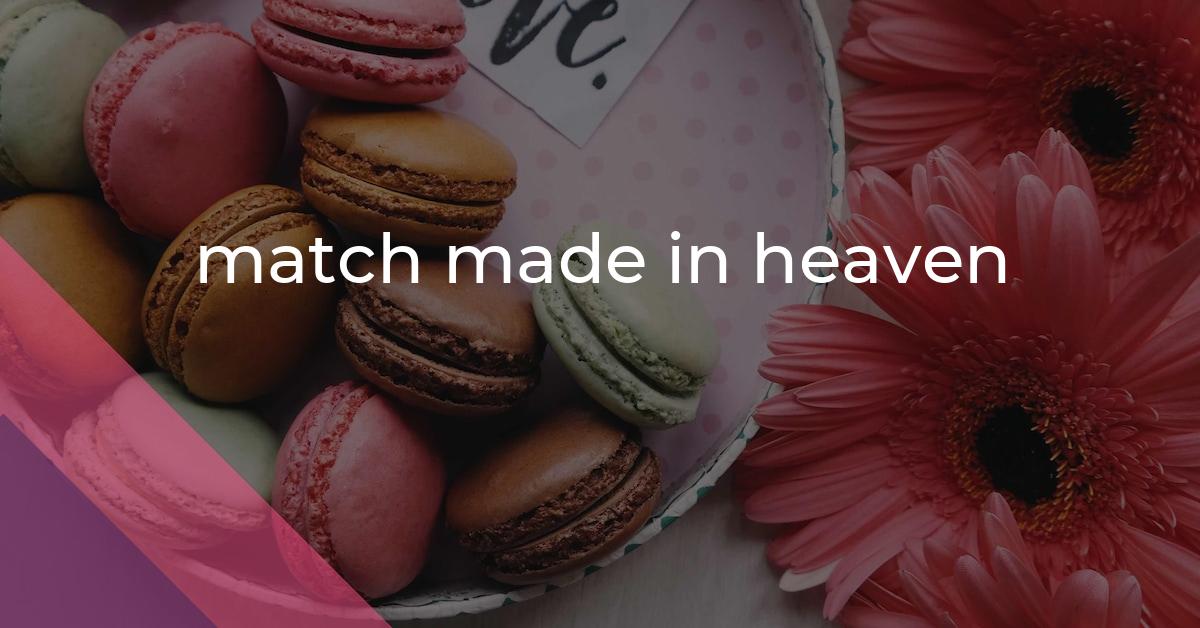match made in heaven: Idiom Meaning and Origin
What does ‘match made in heaven’ mean?
The idiom *match made in heaven* refers to a perfect pairing or combination of two people or things that seem to be ideally suited for each other, as if it was predestined.

Idiom Explorer
The idiom "stars align" refers to a situation when all the necessary factors come together perfectly to create a favorable outcome or opportunity.
"Picture-perfect" is an idiom that means something is flawless or ideal, resembling a perfect image or picture. It is often used to describe a scene, setting, or moment that is visually stunning and without any flaws or imperfections.
The idiom "peaches and cream" refers to something that appears to be perfect, flawless, or ideal.
The idiom "paradise on earth" means a place or situation that is considered to be perfect, beautiful, and resembling paradise.
The idiom "of a piece" means that things or elements are similar or consistent in nature, quality, or character.
Decoding Perfection
Idioms are a fascinating part of language that give us insight into cultural beliefs, history, and social interactions. One such idiom that has firmly established itself in the English language is "match made in heaven." This popular phrase is often used to describe a perfect or ideal pairing, particularly in the context of romantic relationships. It suggests that the two people or things being referred to are extremely well-suited for each other, as if their union was destined or meant to be.
The origins of this idiom can be traced back many centuries and it has its roots in religious and mythological beliefs. The notion of a "match made in heaven" is connected to the idea of divine intervention or blessing, where heavenly forces have influenced the pairing. It taps into the belief that certain relationships are predestined and fated, as if they were arranged by a higher power. This aligns with religious beliefs that marriages are made in heaven and highlights the sacredness and sanctity of the marital bond.
While it's difficult to pinpoint the exact origins of this idiom, it is likely that it gained prominence during the Victorian era, a time when love and commitment were highly valued. In that period, marriage was often seen as a practical arrangement between families rather than a choice based purely on personal affection. Therefore, a "match made in heaven" implied a marriage that was not only advantageous for the individuals involved, but also for their respective families, bridging any divides or differences.
In present-day usage, the idiom "match made in heaven" is not limited to describing romantic relationships. It has expanded to encompass any pairing or combination that is seen as extremely harmonious, successful, or mutually beneficial. This can extend to professional partnerships, collaborations, or even objects that complement each other perfectly. The phrase has become firmly embedded in everyday language as a metaphor for expressing the concept of an ideal union or connection.
The idiom "match made in heaven" carries both deep historical and cultural significance. It originated from religious and mythological beliefs, representing a pairing that is perceived as perfect or ideal, characterized by compatibility and mutual benefit. It has evolved from its origins in marriage traditions to include a wider range of relationships and associations. While the idiom reflects a desire for divine intervention in forging connections, it also speaks to the human need for meaningful and fulfilling relationships. Like many other idioms, it captures the complexities of human interactions and the timeless quest for harmony and contentment.
Another related idiom is "made for each other." This phrase emphasizes the idea of two individuals being perfectly suited to each other, as if they were created specifically to be together. It reinforces the notion of a deep compatibility and connection that goes beyond surface similarities. When we say that a couple is "made for each other," we are suggesting that their traits, values, and interests align so well that they are an ideal match.
Similarly, the idiom "go together" conveys the idea of two things or people being naturally suited to each other or having a strong association. It implies that the combination of the two elements is so fitting and complementary that they go hand in hand. This idiom is often used to describe things like food and drink pairings or harmonious color combinations. When we say that two things "go together," we are highlighting the seamless and seamless combination they create.
The idiom "match made in heaven" is deeply embedded in the English language and symbolizes a perfect or ideal pairing. It draws upon religious and mythological beliefs, representing a connection that is considered fated or destined. The phrase has evolved over time to include a wider range of relationships and associations beyond just romantic ones. Along with related idioms like "made for each other" and "go together," it highlights the concept of compatibility and harmonious connections. These idioms serve as reminders of our innate desire for meaningful and fulfilling relationships and the timeless quest for harmony and contentment.
Example usage
1. John and Mary are the perfect match made in heaven. They share the same interests, goals, and have a deep understanding of each other.
2. The collaboration between the two famous artists was a match made in heaven. Their different artistic styles blended seamlessly, resulting in a masterpiece.
3. The new partnership between the two companies seems to be a match made in heaven. Both bring complementary expertise and resources to the table, which will greatly benefit their joint projects.
More "Relationship" idioms



